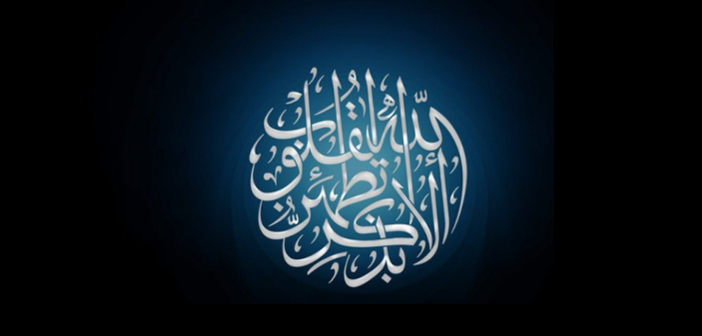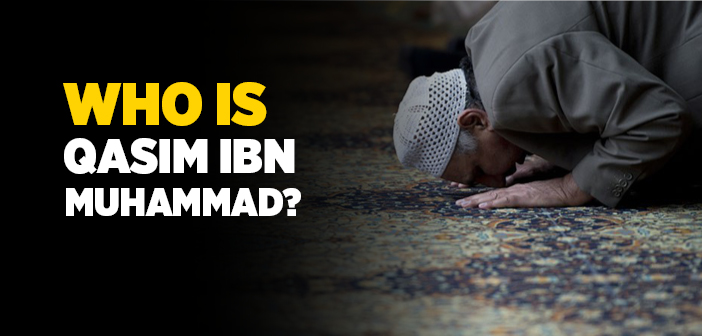Who is Muhammad Arif Riwgari? What kind of person Muhammad Arif Riwgari? When did Muhammad Arif Riwgari live?
Muhammad Arif Riwgari [d. 1237]
Muhammad Arif Riwgari (may Allah have mercy on him) was born in the village of Rigor approximately 7km from Ghujduwan in the north of Bukhara. He entered into the service of Abdul Khaliq Ghujdawani (may Allah have mercy on him) at a young age. He gave great importance to worship and serving others. He would force himself to remain awake. Seeing this exceptional resolution and effort Khidr prayed that he become a gnostic. By the blessings of this prayer he did in fact become a great gnostic[1].
In his first talk Ghujdawani gave Khwaja Arif (may Allah have mercy on them both) the following advice:
“A traveller on the path to The Real should know the value of his time. He should frequently take himself to account and see what state he is in, as time passes him by little by little. If he spends a moment with his heart in a state of wakefulness and in peace, then he should know that this is a state that requires gratitude and he should give thanks to Allah.
However, if, your moment was passed in heedlessness then you should immediately make amends and seek Allah’s forgiveness”[2].
After the death of Ghujdawani (may Allah have mercy on him), Riwgari (may Allah have mercy on him) started on his own path of guidance and continued for many years. He showed great care in continuing in the same direction as his master.
Towards the last days of his life and because the times required it, he began to teach vocal dhikr, (dhikr jahri) and he allowed it. In this way, the people who had become very distant from dhikr began to hear it and vie for it.
Riwgari was known for his knowledge (‘ilm), wisdom (‘irfan), asceticism (zuhd), God-consciousness (taqwa), abstinence (riyadat), his worship (‘ibada) and his complete devotion to the Sunnah of the prophet Muhammad (peace and blessings be upon him).
It was due to his particular care in following the Sunnah that he was raised to such a high rank.
Arif Riwgari, who knew the Sunnah of the prophet very well, and who struggled to teach it and live by it, generally began his talks with the following words:
“May Almighty Allah honour us with the joy of following the Sunnah of the prophet Muhammad, the best and most virtuous of all of mankind, and the master of this world and the hereafter. Allah loves that He is obeyed and followed. The tiniest atom’s weight of following him is better than all of the pleasures of this world and more superior than the bounties of the hereafter. True virtue is to follow his elevated Sunnah”[3].
Riwgari (may Allah have mercy on him) was well-mannered towards everyone and he would take great care not to hurt another’s feelings. He gave great importance to purification of the nafs and cleansing of the heart and would intensely shun all forbidden things. In fact, he would even abandon most of the lawful things from fear that he might do something forbidden. He would spend his nights in worship and his days in teaching his students.
As a result of his teaching and guidance of others, Riwgari was the means for many people to be guided and for many others to be raised to the status of a wali.
He passed away in Riwgar, in the hijri year 634 (1237). His blessed tomb is there.
He Was Between Fear and Hope
Riwgari (may Allah have mercy on him) narrates: “Shaqiq al-Balkhi had a very righteous and pious daughter by the name of Amina. One day she said to her father:
“Dear father. Do not call me by the name ‘Amina’. A person who is truly ‘amin’ is the one who is saved from the wrath of Allah. But I do not feel safe. On the contrary, I feel surrounded by four kinds of danger:
The first one is death, which every soul shall taste.
The second is the fear of sin. Allah Most High says: “…Then every soul will be repaid in full what it has earned (while in the world)’ (Baqara, 2:281).
The third is the enemy. Almighty Allah says: “…And do not follow in the footsteps of Shaytan. He truly is an outright enemy to you’ (Baqara, 2:168).
The fourth is the fear of not knowing what my end-affair will be. I try as much as I can to perform good deeds but I do not know how my life will end or what my end affair will be. Dear father, you too do not even know what your hereafter and end affair will be”.
After saying these words, Amina passed away”[4].
His Words of Wisdom
- “The beginning, joy, and key to the Sufi path are to seek refuge in Allah in repentance and reverence. Tawbah is the most important wird of the believer”[5].
- “Serve everyone with your life and your property and do not give orders to anyone”[6].
- “Abandoning the world, that is the carnal desires, means that the heart is always with Allah. This matter is an indication that you have reached a high rank”[7].
- “If a person wishes to be happy let him raise himself to the ranks of the angels. That is, let him not incline towards the desires of his nafs but rather make his nafs obey him. In this way, his inner world will be cleansed, and he will be in a constant state of remembrance of Allah, and he will struggle with all his might to be the true servant that he promised to be. Let him not make any other than Allah beloved to him and not be hopeful of any other than Allah. Let him be ever in the service of the righteous and good men. Let him be careful about his time, which is like a sharp sword; let him not pass any moment in heedlessness or in vain. Let him invoke the Name of Allah always and let his heart be the place where the beautiful attributes of Allah are reflected”[8].
- “The first condition in obtaining knowledge of Allah is to eliminate the desires of the nafs, to stay away from disliked and doubtful things and nourish oneself from the permissible”[9].
- “The fruit of marifatullah is to turn to Allah with one’s entire being”[10].
- “The gnostic is the one who, in every breath bestowed upon him by Allah, he gives his heart to Him entirely. This state continues until his last breath. At the same time, this state of his is hidden from the people”[11].
- “One of the keys of faith is to occupy oneself with pondering on and contemplating the works of Allah. If you wish to see Allah, then witness His work (with the eye of wisdom and taking one’s lesson)”[12].
- “Sometimes silence is more effective than speech”[13].
- “Be a person of pure, upright and sound faith! A heart that is afflicted with heedlessness and ugliness will contaminate all other limbs and the body. Is it not so that Allah either accepts or rejects us into His presence because of our heart?”[14]
- “Consider a bird with a heavy weight upon it; can it ever fly? In the same way if the traveller is very attached to the world he will not be able to open out his wings towards Allah and rise up in the valley of seeking”[15].
[1]. Makamat-i Abdulkhaliq Ghujduwani and Arif Riwgari, p. 4-5.[2]. Heyet, Encyclopaedia of Awliya, III, 233.[3]. Heyet, Encyclopaedia of Awliya, III, 233.[4]. Arif Riwgari, Arifname, p. 13.[5]. Arif Riwgari, ibid, p. 5.[6]. Arif Riwgari, ibid, p. 4.[7]. Arif Riwgari, ibid, p 3.[8]. Arif Riwgari, ibid, p 3.[9]. Arif Riwgari, ibid, p 7.[10]. Arif Riwgari, ibid, p 9.[11]. Arif Riwgari, ibid, p 8-9.[12]. Arif Riwgari, ibid, p 9.[13]. Arif Riwgari, ibid, p 8.[14]. Arif Riwgari, ibid, p 4.[15]. Arif Riwgari, ibid, p. 6.
Source: Osman Nuri Topbaş,The Golden Chain of Transmission Masters of the Naqshinandi Way, Erkam Publications





